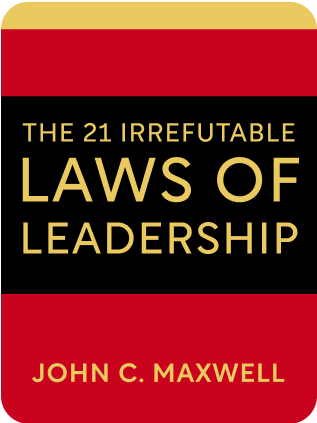

This article is an excerpt from the Shortform book guide to "The 21 Irrefutable Laws Of Leadership" by John C. Maxwell. Shortform has the world's best summaries and analyses of books you should be reading.
Like this article? Sign up for a free trial here .
What is the Law of Intuition? What does intuition mean in the context of leadership?
The Law of Intuition is the eighth of the 21 laws of leadership from John C. Maxwell. The Law of Intuition states that great leaders rely on instinct and “leadership bias”, noticing things others miss and “reading” their environments.
Keep reading to learn about the Law of Intuition plus some real-world examples of its application.
John C. Maxwell’s Law#8: The Law of Intuition
Leaders view the world differently than other people do. They look beyond empirical data and consider intangibles such as morale, momentum, and chemistry.
Leaders are attuned to many intangibles and can “read” the following:
● Situations. Leaders can walk into a room and sense the team chemistry and dynamics. ○ For example, when John C. Maxwell walks into the office of EQUIP, a company he owns but doesn’t often visit, he’s quickly able to fit back in. He’s able to sense people’s attitudes and ask good questions.
● Trends. While followers and managers think short-term, leaders think years and decades ahead. They can “feel” where a company is headed.
● Resources. Instead of personally doing things, leaders maximize resources, especially other people.
○ For example, when a high-performance leader encounters a problem, she doesn’t think, how can I help, or how can I solve this? She thinks, how do I reach the next level to overcome this? Who do I put on this project?
● People. Leaders can sense how people are feeling.
○ For example, leaders watch people’s faces and body language, talk to people, and read books on relationships to develop this skill.
● Themselves. Leaders are aware of their current state of mind, strengths, and weaknesses.
Leadership often calls on you to make a decision before you have all the information. What you don’t know, you make up for in intuition. Colin Powell (retired army general and former secretary of state) purposefully collects only 40-60% of available data before making a decision.
This law is one of the most difficult, but everyone possesses some level of intuition. People are typically intuitive in their areas of strength (for example, a fashion designer knows how to match colors without even thinking about it). Therefore, natural leaders have a head start with this law, but everyone can work on it. Intuition comes from two things, talent and learning. Not everyone will have natural talent, but everyone who’s willing to learn can develop intuition.
Example of Failed Application of the Law: Outgoing Commander
One of the battalions in the Vietnam War was nicknamed “worst of the Sixth.” The troops were incompetent, morale was low, and the battalion had scored only 16/100 on its annual inspection. What had happened to this battalion? Poor leadership—particularly a failure to consider intangibles such as morale.
One of the battalion’s commanders never inspected his troops. The officers didn’t care about anything, men were dying, and no one was following security protocols. Instead of trying to turn this around, the commander left the battalion, blaming its failure on the troops.
Example of Successful Application of the Law: General H. Norman Schwarzkopf
U.S. Army General H. Norman Schwarzkopf was the incoming commander of the “worst of the Sixth” battalion. He quickly assessed the group and realized that most of the problems weren’t to do with the troops; they were the fault of the outgoing commander.
Schwarzkopf did everything the outgoing commander hadn’t—he studied the troops and used his leadership intuition to improve intangibles. He noticed the officers were indifferent. He noticed that no one was following basic security procedures. He noticed that sometimes when men died, it was needless—not good for morale!
Schwarzkopf retrained the troops, boosted morale, and developed leaders. The group passed the next inspection, which further boosted morale, and eventually the battalion was assigned some of the most difficult missions.
Additional Examples:
● The Great Outdoors movie—In the movie, two men, Chet and Roman, sit on the porch and talk about the view. Chet sees trees. Roman sees a potential paper mill, mining operation, or waste management facility. Who you are determines your view of the world, and if you’re a leader, you view everything with a “leadership bias.”
● USC coach Larry Smith—Before every game, coach Larry Smith spent the night in the team’s offensive war room so that he could absorb the plays and counterplays written on the chalkboards. He always brought notes to games, but he knew he wouldn’t always have time to consult them. He needed to learn the plays well enough that they were reflex, so that his intuition would take over when the time came to make decisions. The USC quarterbacks were also required to know the plays this well.
Applying the Law of Intuition
Reading people is one of the most important abilities for a leader to develop. If you struggle with this, you can improve it by:
- Researching relationships, for example, by reading a book about them
- Conversing with more people
- Watching people

———End of Preview———
Like what you just read? Read the rest of the world's best book summary and analysis of John C. Maxwell's "The 21 Irrefutable Laws Of Leadership" at Shortform .
Here's what you'll find in our full The 21 Irrefutable Laws Of Leadership summary :
- Why working with people is the only way to do meaningful work
- How to become the kind of person that can get things done
- Why you don't need to be good at all the laws of leadership to be a good leader






